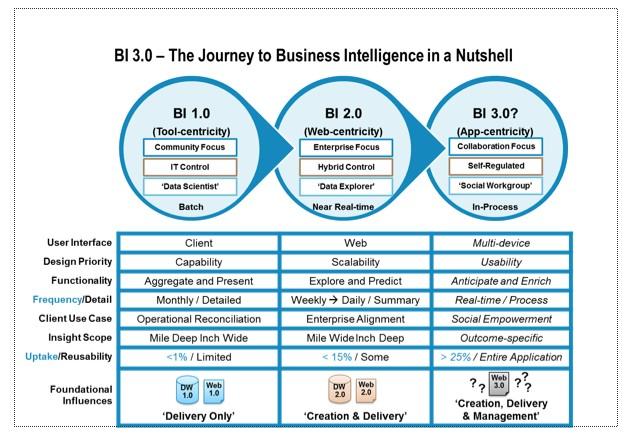Car Accident Was My Fault
Oop! You did it! You got into a car accident, and it was your fault. Darn! Now what do you do? The aftermath of a car accident can be overwhelming, but it’s important to take things one step at a time. Here’s what you need to know about dealing with the aftermath of a car accident that was your fault.
The Aftermath: Dealing with the Consequences
Rear-ending someone can leave you in a daze. It’s easy to feel overwhelmed by the legal, financial, and emotional consequences of the accident. But don’t freak out! Just take a deep breath and start by taking responsibility for your actions. This means cooperating with the police, providing your insurance information to the other driver, and being honest about what happened.
Next, you’ll need to deal with the financial consequences of the accident. This may include paying for repairs to your own car, as well as the other driver’s car. You may also be responsible for medical expenses and lost wages. That’s why it’s always recommended to have car insurance, so they can help you deal with the financial burden.
Finally, you’ll need to deal with the emotional consequences of the accident. This may include feelings of guilt, shame, and anxiety. It’s important to remember that accidents happen. No one is perfect, even the most careful drivers make mistakes. Give yourself time to heal emotionally and don’t be afraid to seek help from a therapist or counselor if you need it.
Dealing with the aftermath of a car accident can be tough. However, by taking responsibility for your actions and facing the consequences head-on, you can get through this difficult time and move on with your life.
Car Accident Was My Fault: Here’s What to Do
It’s a sinking feeling, realizing you’ve caused a car accident. The guilt, the fear, the uncertainty—it all washes over you like a cold shower. But amidst the chaos, there are steps you need to take. One of the most important is assessing the damages.
Assessing Damages
This doesn’t just mean the dents in your car’s bumper. In the aftermath of an accident, you need to take stock of all the costs you’ve incurred, both big and small. Start with the obvious: the damage to your own vehicle. But don’t forget about the other cars involved, as well as any property that may have been damaged, like a fence or a mailbox.
Next, consider injuries. Were you or any of the other drivers or passengers hurt? Even minor injuries can have long-term consequences, so it’s important to get them checked out by a doctor. And don’t forget about the emotional toll an accident can take. You may be entitled to compensation for your pain and suffering, too.
Finally, there are the other expenses that can add up after an accident. Things like towing fees, rental car costs, and lost wages can all put a strain on your finances. Be sure to document all of these expenses so you can recover them later.
Assessing damages after a car accident can be a daunting task, but it’s an important one. By taking the time to carefully document all of your costs, you’ll be in a better position to get the compensation you deserve.
Car Accident: It Was My Fault
Experiencing a car accident can be a frightening and stressful event, especially when you’re at fault. The aftermath can feel overwhelming, but it’s important to take the necessary steps to report the accident and protect yourself legally and financially. Here’s a comprehensive guide to help you navigate this challenging situation:
Reporting the Accident
After a car accident, it’s crucial to inform your insurance company and file a police report. Prompt reporting ensures that your insurance claim is processed efficiently and provides official documentation of the incident. When contacting your insurance provider, be prepared to provide details about the accident, including the time, location, and a brief description of what happened.
Filing a police report is equally important. A police report serves as an impartial record of the accident, containing valuable information like witness statements, measurements, and diagrams. It can also protect you from false claims or disputes down the road.
Contacting the Other Driver
After reporting the accident, it’s essential to exchange information with the other driver(s) involved. This includes your names, addresses, phone numbers, insurance details, and license numbers. Getting this information promptly will facilitate the insurance claims process and prevent any potential delays or disputes.
Documenting the Scene
If possible, take photos of the accident scene. Capturing images of the damage to both vehicles, the surroundings, and any visible injuries can serve as valuable evidence for your insurance claim and potential legal proceedings. Additionally, jot down notes about the weather conditions, road conditions, and any other relevant details that may have contributed to the accident.
Seeking Medical Attention
Even if you don’t feel injured immediately after the accident, it’s crucial to seek medical attention. Some injuries, such as concussions or whiplash, may not show symptoms right away. A medical professional can assess your injuries properly, document them, and provide necessary treatment or referrals. Your medical records will also support any insurance claims related to your injuries.
Preserving Evidence
It’s important to preserve any evidence related to the accident. This includes damaged vehicle parts, clothing, eyewitness accounts, and medical records. Keeping these items safe will strengthen your case and help you prove your fault in the accident. Additionally, avoid discussing the accident with anyone other than your insurance company, attorney, or the police, as it could potentially harm your case.
Car Accident Was My Fault: Navigating Legal Consequences
In the aftermath of a car accident, determining fault is crucial. If you’re grappling with the guilt of causing the mishap, it’s essential to understand the potential legal implications you may face. Depending on the severity of the accident, you could be held liable for criminal charges or a civil lawsuit.
Legal Implications
The severity of the accident plays a pivotal role in the legal consequences you may encounter. Minor accidents involving property damage typically lead to civil lawsuits, where the injured party seeks compensation for their losses. However, in cases involving serious injuries or fatalities, criminal charges may be filed against the at-fault driver.
Civil Liability
H2>
In a civil lawsuit, the injured party must prove that you were negligent in causing the accident. Negligence refers to a failure to exercise reasonable care, which results in harm to another person. If the injured party successfully establishes negligence, you may be held liable for damages such as medical expenses, lost wages, and pain and suffering.
Criminal Charges
In more severe cases, causing an accident may result in criminal charges. These charges can range from reckless driving to vehicular manslaughter. Criminal charges are often filed when the accident involves substantial injuries or fatalities and the at-fault driver was under the influence of alcohol or drugs, or driving with reckless disregard for the safety of others.
Insurance Coverage
Your auto insurance policy provides coverage for liability in case of an accident. However, if the accident was caused by intentional or reckless behavior, your insurance company may deny coverage. It’s essential to review your policy carefully and consult with an insurance agent to ensure you have adequate coverage in place.
Seeking Legal Advice
If you’ve been involved in a car accident that was your fault, it’s crucial to seek legal advice immediately. An experienced attorney can guide you through the legal process, protect your rights, and help you minimize the potential consequences.
Car Accident Was My Fault: What to Do
Being involved in a car accident is a stressful and overwhelming experience. When the accident was your fault, this stress can be compounded by feelings of guilt and anxiety. Especially when it comes to dealing with insurance companies and figuring out who is financially responsible. In this article, we will provide some guidance on what to do if you were at fault for a car accident.
Insurance Coverage
The first thing you should do after a car accident is to review your insurance policy. This will help you understand your coverage and determine your liability. If you have liability insurance, it will cover the costs of damages to the other driver’s car and injuries. However, it will not cover your own damages. If you have collision insurance, it will cover the costs of your own damages.
What to Do at the Scene of the Accident
The actions you take at the scene of the accident can have a significant impact on your insurance claim. Here are some things you should do:
- Stay calm and collected.
- Pull over to the side of the road if possible.
- Check yourself and your passengers for injuries.
- Call the police. Even if the accident is minor, it is important to file a police report.
- Exchange information with the other driver(s).
- Take pictures of the accident scene.
- Get the names and contact information of any witnesses.
Dealing with the Insurance Company
After the accident, you will need to file a claim with your保险公司. The insurance company will investigate the accident and determine who is at fault. If you are found to be at fault, you will be responsible for paying the damages to the other driver’s car and injuries. You may also be responsible for paying for your own damages if you do not have collision insurance.
Here are some tips for filing a claim with your insurance company:
- Be honest and accurate when reporting the accident.
- Provide the insurance company with all of the information they request.
- Cooperate with the insurance company’s investigation.
- Do not sign any documents without first reading them carefully.
Getting Legal Help
If you are being sued by the other driver, you should contact a lawyer. A lawyer can help you protect your rights and get you the compensation you deserve.
Here are some situations in which you should consider getting legal help:
- You are being sued by the other driver.
- The insurance company is denying your claim.
- You are not satisfied with the amount of compensation offered by the insurance company.
Being involved in a car accident is a difficult experience. If you were at fault, it is important to know what to do. By following the tips in this article, you can protect your rights and get the compensation you deserve.
Was it Your Fault?
The aftermath of a car accident can be overwhelming, especially if you believe it was your fault. The guilt and stress can be paralyzing, making it difficult to know where to turn. One of the most pressing concerns after a car accident is financial responsibility. It’s important to understand who is liable for the damages and what steps you need to take to protect yourself financially.
Insurance Coverage
Most states require drivers to have car insurance. If you were at fault for the accident, your insurance company will likely cover the costs of the other driver’s medical bills, property damage, and other expenses. However, there’s a chance that your coverage may not be enough to cover all the damages. In this case, you may be held personally liable for the remaining balance.
Personal Liability
If your insurance coverage is insufficient, you may be held personally liable for the damages. This means that you could be sued by the other driver or their insurance company for the remaining costs. You could also lose your assets, such as your home or car, to pay for the damages.
Statute of Limitations
There is a time limit on how long after an accident you can be sued. This time limit, known as the statute of limitations, varies from state to state. If the other driver misses the deadline to file a lawsuit, they will not be able to hold you financially responsible for the damages.
Negotiating a Settlement
If you are being sued, you may be able to negotiate a settlement with the other driver or their insurance company. This can involve agreeing to pay a certain amount of money in exchange for dropping the lawsuit. It’s important to consult with an attorney before negotiating a settlement to ensure that you are protected.
Protecting Yourself Financially
There are several things you can do to protect yourself financially after a car accident. First, make sure you have adequate insurance coverage. You should also keep all documentation related to the accident, such as the police report and medical bills. Finally, if you are being sued, consult with an attorney to discuss your options.
Oops! You had an accident, and it was your fault. What should you do now? Take a deep breath, and don’t panic. Here are some essential steps to follow after being involved in a car accident that was your fault.
First, don’t flee the scene of the accident. It’s essential to stay at the scene and exchange information with the other driver involved in the accident. This includes your name, address, phone number, insurance information, and license numbers. Additionally, take photos of the accident scene, any visible injuries, and damage to the vehicles.
In the aftermath of an accident, you should seek medical attention as soon as possible, especially if you feel any pain or discomfort. Even if you don’t feel injured, it’s important to get checked out by a doctor to rule out any underlying injuries.
Once you’ve addressed your immediate needs, it’s time to notify your insurance company about the accident. They will guide you through the claims process and help you get your car repaired or replaced if necessary. It’s also a good idea to keep a record of all communication with your insurance company, including phone calls, emails, and letters.
In some cases, you may need to hire an attorney to represent you in court. This is especially true if the accident resulted in serious injuries or property damage. An attorney can help you navigate the legal process, protect your rights, and ensure that you receive fair compensation for your losses.
Seeking Legal Advice
If you’re involved in a car accident that was your fault, it’s important to consider consulting an attorney. An attorney can help you to:
- Understand your legal rights and obligations
- Negotiate with the other driver’s insurance company
- File a lawsuit if necessary
- Protect your interests throughout the legal process
If you’re not sure whether or not you need an attorney, it’s always a good idea to consult with one for a free consultation. An attorney can assess your case and advise you on the best course of action.
The aftermath of a car accident can be a stressful and confusing time. By following these steps, you can help to protect your rights and ensure that you receive fair compensation for your losses.
Car Accident Was My Fault: Navigating the Aftermath
If you’ve been in a car accident that was your fault, you’re likely experiencing a mix of emotions, including guilt, shame, and uncertainty. Know that you’re not alone. Many people find themselves in this situation. The key is to understand your responsibilities, take appropriate steps to address them, and work towards healing and moving forward.
Immediate Steps to Take
If you’re involved in a car accident, your first priority should be to ensure the safety of yourself and any passengers. Call 911 immediately to report the accident and request medical assistance if needed. Once you’ve ensured everyone’s safety, exchange information with the other drivers involved, including your name, contact details, and insurance information.
Legal Obligations
As the at-fault driver, you’re legally obligated to cooperate with the police and insurance companies. Provide a statement and answer any questions honestly. You may also have to attend a court hearing if there are any legal proceedings.
Insurance Implications
Your car insurance policy will likely cover some or all of the damages and injuries caused by the accident. However, your premiums may increase as a result. Be prepared to pay any deductibles or out-of-pocket expenses not covered by insurance.
Emotional and Physical Well-being
In the aftermath of a car accident, you may experience physical injuries and emotional trauma. Take time to rest, seek medical treatment, and connect with loved ones for support. It’s important to prioritize your well-being and allow yourself time to heal.
Moving Forward
After dealing with the immediate aftermath, focus on healing, rebuilding, and learning from the experience. Set realistic goals for your recovery and don’t be afraid to ask for help. This could include physical therapy, counseling, or support from family and friends. Take time to reflect on what happened and what you could have done differently to avoid the accident. Use this as an opportunity for personal growth and to make any necessary changes in your behavior.
Legal Representation
If you’re facing legal charges or significant financial consequences as a result of the accident, consider consulting with an attorney. They can provide guidance, represent you in court, and help you protect your rights.
Financial Responsibilities
As the at-fault driver, you may be responsible for paying for damages to the other vehicles involved, medical expenses, lost wages, and pain and suffering. It’s essential to be honest and forthright about your financial situation. If you’re unable to pay the full amount, you can work with the other parties involved to negotiate a payment plan or seek financial assistance.
Learning from the Experience
While it’s natural to regret your actions, it’s important to focus on learning from the experience. Take time to reflect on what went wrong and what you could have done differently. This will help you avoid similar accidents in the future and make you a more responsible driver.




Leave a Reply